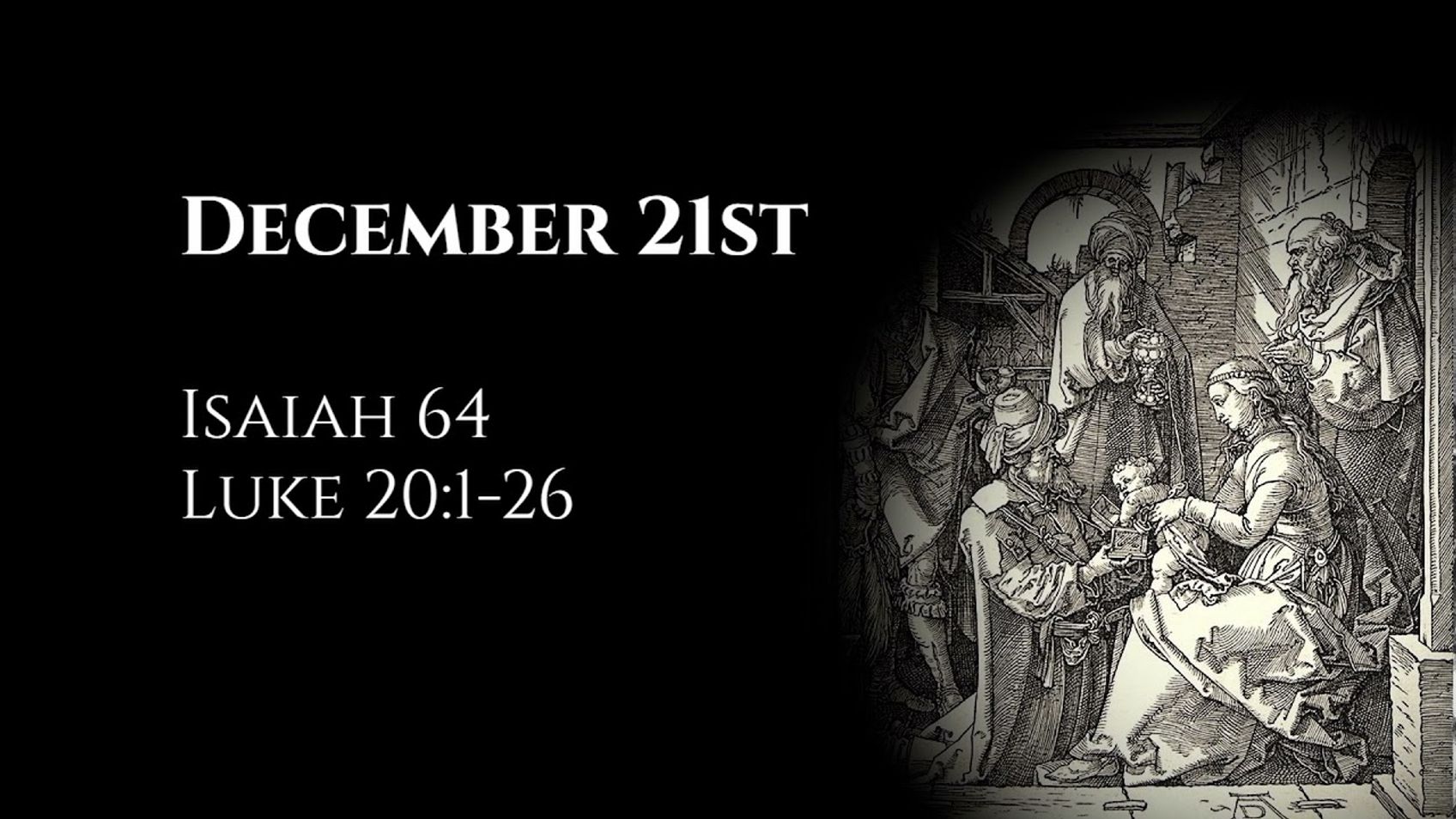December 21st: Isaiah 64 & Luke 20:1-26
December 20, 2021

Alastair Roberts
Oh that you would rend the heavens and come down! The Parable of the Wicked Tenants.
My reflections are searchable by Bible chapter here: https://audio.alastairadversaria.com/explore/.
If you are interested in supporting this project, please consider supporting my work on Patreon (https://www.patreon.com/zugzwanged), using my PayPal account (https://bit.ly/2RLaUcB), or buying books for my research on Amazon (https://www.amazon.co.uk/hz/wishlist/ls/36WVSWCK4X33O?ref_=wl_share).
You can also listen to the audio of these episodes on iTunes: https://itunes.apple.com/gb/podcast/alastairs-adversaria/id1416351035?mt=2.
More From Alastair Roberts
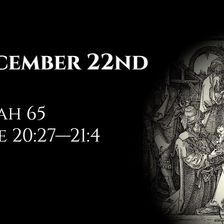
December 22nd: Isaiah 65 & Luke 20:27—21:4
Alastair Roberts
December 21, 2021
A new heavens and a new earth. Jesus challenged by the Sadducees concerning the resurrection.
My reflections are searchable by Bible chapter here: ht
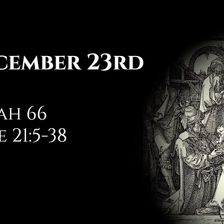
December 23rd: Isaiah 66 & Luke 21:5-38
Alastair Roberts
December 22, 2021
Zion gives birth to a new nation. The Olivet Discourse.
My reflections are searchable by Bible chapter here: https://audio.alastairadversaria.com/exp
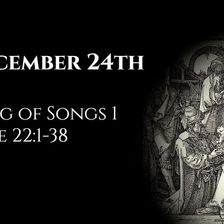
December 24th: Song of Songs 1 & Luke 22:1-38
Alastair Roberts
December 23, 2021
Let him kiss me with the kisses of his mouth! The Last Supper.
My reflections are searchable by Bible chapter here: https://audio.alastairadversaria.
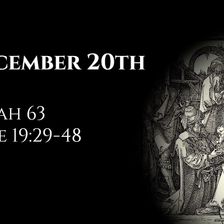
December 20th: Isaiah 63 & Luke 19:29-48
Alastair Roberts
December 19, 2021
The Divine Warrior coming from Edom. The Triumphal Entry.
My reflections are searchable by Bible chapter here: https://audio.alastairadversaria.com/e
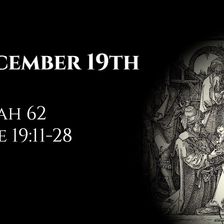
December 19th: Isaiah 62 & Luke 19:11-28
Alastair Roberts
December 18, 2021
Zion restored and renamed. The Parable of the Minas.
My reflections are searchable by Bible chapter here: https://audio.alastairadversaria.com/explor
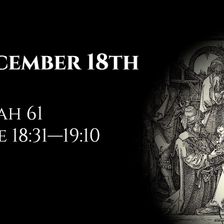
December 18th: Isaiah 61 & Luke 18:31—19:10
Alastair Roberts
December 17, 2021
The Spirit of the Lord is upon me. Jesus in Jericho.
My reflections are searchable by Bible chapter here: https://audio.alastairadversaria.com/explor
More on OpenTheo

Can Two Logical People Come to Conflicting Conclusions Without Committing a Fallacy?
#STRask
January 8, 2026
Questions about whether two logical people can come to conflicting conclusions on a topic without committing a fallacy, how Greg, as a public figure,

How Do I Determine Which Topics at Work Are Worth Commenting On?
#STRask
January 5, 2026
Questions about how to determine which topics at work are worth commenting on, and a good way to respond when you’re in a group Bible study and hear e

Conservatism and Religious Freedom with John Wilsey
Life and Books and Everything
October 27, 2025
What is conservatism? And why does it go hand in hand with religious freedom? How should we think about the American experiment of ordered liberty? Ha

The Heidelberg Catechism with R. Scott Clark
Life and Books and Everything
November 3, 2025
You may not think you need 1,000 pages on the Heidelberg Catechism, but you do! R. Scott Clark, professor at Westminster Seminary California, has writ

Is 1 Corinthians 12:3 a Black-and-White Tool for Discernment?
#STRask
October 27, 2025
Questions about whether the claim in 1 Corinthians that “no one can say ‘Jesus is Lord’ except in the Holy Spirit” is a black-and-white tool for disce

When I Can’t Stop Thinking About Something, Is That God Speaking?
#STRask
December 1, 2025
Questions about whether having a recurring thought is an indication God is speaking to you, what to say to someone who says they sinned because “God t

Shouldn’t I Be Praying for My Soul Rather Than for Material Things?
#STRask
February 2, 2026
Questions about whether we should be praying for our souls rather than for material things, why we need to pray about decisions, whether the devil can

Why Would Any Rational Person Have to Use Any Religious Book?
#STRask
December 8, 2025
Questions about why any rational person would have to use any religious book, whether apologetics would be redundant if there were actually a good, un

What About Those Who Never Heard the Name of Jesus?
#STRask
December 22, 2025
Questions about what will happen to those who never heard of Jesus or were brought up in a different faith, whether there’s biblical warrant to think

How Do We Advocate for Christian Policy Without Making the Government Interfere in Every Area of Life?
#STRask
November 20, 2025
Questions about how to advocate for Christian policy without making the government interfere in every area of life, and the differences between the mo

How Can I Explain Modesty to My Daughter?
#STRask
November 27, 2025
Questions about how to explain modesty to a nine-year-old in a way that won’t cause shame about her body, and when and how to tell a child about a pre

Kingdom Priorities: Following the Teachings of Jesus
Knight & Rose Show
February 14, 2026
Wintery Knight and Desert Rose discuss Jesus' teachings from the Gospels, emphasizing truth, evidence, self-denial, and forgiveness. They explore pass

Does God Really Need a “Pound of Flesh” to Forgive Sins?
#STRask
January 12, 2026
Questions about how to answer the challenge that God doesn’t need a “pound of flesh” to forgive sins but can simply forgive, and whether the claim in

Is It a Sin to Feel Let Down by God?
#STRask
November 6, 2025
Questions about whether it’s a sin to feel let down by God and whether it would be easier to have a personal relationship with a rock than with a God

Could the Writers of Scripture Have Been Influenced by Their Fallen Nature?
#STRask
October 23, 2025
Questions about whether or not it’s reasonable to worry that some of our current doctrines were influenced by the fallen nature of the apostles, and h
